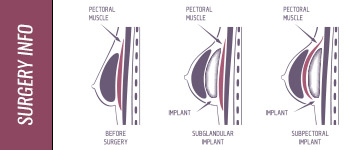Insurance companies will not cover cosmetic surgery, on the basis that it is not health-related and necessary. However, they will cover reconstructive surgery. That is defined as functionally necessary plastic surgery, as in breast reconstruction after a mastectomy or nose reconstruction after a severe injury. Many will also cover weight loss surgery.
As the U.S. population continues to become more and more obese, weight loss (bariatric) surgery becomes more popular. That is surgery which alters the digestive system to reduce the volume of food digested.
Gastric Bypass Surgery
The best-known such procedure is a gastric bypass, where part of the stomach is stapled off to prevent it receiving any food. This gives the person a full feeling more quickly, as the smaller functional stomach fills up with less food. This surgery also seals off the existing connection between stomach and small intestine and creates an alternative channel. It “bypasses” the upper part of the small intestine (the duodenum) which means less food (read calories) is absorbed.
Gradually an obese person who has a gastric bypass loses weight. They often become healthier in some ways, such as suffering less from high blood pressure, and less often becoming diabetic. They tend to take fewer medications and to go less often to a doctor or an emergency room.
A gastric bypass is major surgery. There is also less invasive surgery done for the same reasons, known as laparoscopic weight loss surgery. Instead of using one large incision from the belly button up to the breast bone (about one foot long), it uses several small incisions less than one inch long.
A laparoscope is a thin tube with a video camera at its tip. It is connected to a computer. The surgeon inserts it through one of the small incisions and uses the other incisions to insert implements for doing the surgery. He can see what he is doing on the computer monitor.
Research on Weight Loss Surgery Results
Johnson & Johnson, which manufactures instruments used in bariatric surgery, recently funded a research project on patients who had this type of surgery. The study was led by the economic consulting firm Analysis Group and the University of Quebec at Montreal. It was based on the insurance claims filed by 3,651 morbidly obese patients who had bariatric surgery, and a control group of such people who did not have that type of surgery. Bariatric surgery patients were tracked for six months before their surgery and five years after it. The control group was also tracked for five years.
One Pierre-Yves Cremieux of Analysis Group published an article about this study in the American Journal of Managed Care. It reports on how insurance companies who had paid for bariatric surgery recouped their costs within a few years because of the patients’ improved health. A gastric bypass costs about $26,000, recouped within about four years. Laparoscopic procedures cost about $17,000, which insurance companies can recoup in about two years.





Leave a Reply